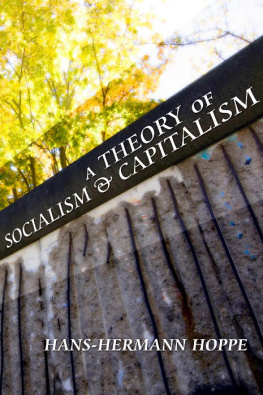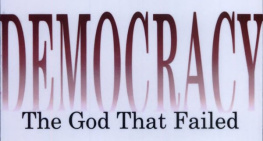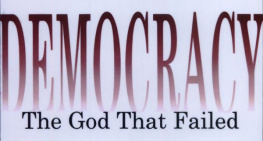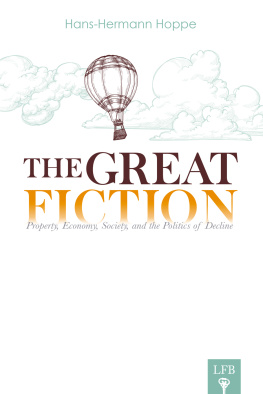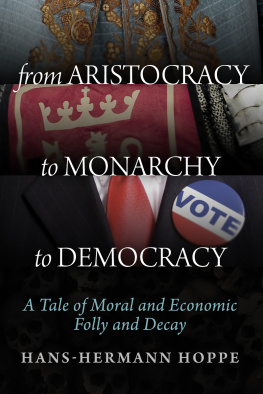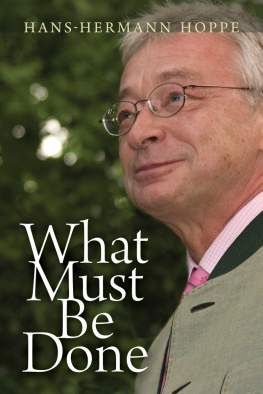Hoppe - Natural Elites, Intellectuals, and the State
Here you can read online Hoppe - Natural Elites, Intellectuals, and the State full text of the book (entire story) in english for free. Download pdf and epub, get meaning, cover and reviews about this ebook. year: 2013, publisher: Ludwig von Mises Institute, genre: Politics. Description of the work, (preface) as well as reviews are available. Best literature library LitArk.com created for fans of good reading and offers a wide selection of genres:
Romance novel
Science fiction
Adventure
Detective
Science
History
Home and family
Prose
Art
Politics
Computer
Non-fiction
Religion
Business
Children
Humor
Choose a favorite category and find really read worthwhile books. Enjoy immersion in the world of imagination, feel the emotions of the characters or learn something new for yourself, make an fascinating discovery.

- Book:Natural Elites, Intellectuals, and the State
- Author:
- Publisher:Ludwig von Mises Institute
- Genre:
- Year:2013
- Rating:5 / 5
- Favourites:Add to favourites
- Your mark:
- 100
- 1
- 2
- 3
- 4
- 5
Natural Elites, Intellectuals, and the State: summary, description and annotation
We offer to read an annotation, description, summary or preface (depends on what the author of the book "Natural Elites, Intellectuals, and the State" wrote himself). If you haven't found the necessary information about the book — write in the comments, we will try to find it.
Hoppe: author's other books
Who wrote Natural Elites, Intellectuals, and the State? Find out the surname, the name of the author of the book and a list of all author's works by series.
Natural Elites, Intellectuals, and the State — read online for free the complete book (whole text) full work
Below is the text of the book, divided by pages. System saving the place of the last page read, allows you to conveniently read the book "Natural Elites, Intellectuals, and the State" online for free, without having to search again every time where you left off. Put a bookmark, and you can go to the page where you finished reading at any time.
Font size:
Interval:
Bookmark:

The Ludwig von Mises Institute is dedicated to advancing the Austrian School of economics and libertarian scholarship. Founded in 1982, the Institute defends individual liberty, the free market, private property, sound money, and peace. Its broad range of teaching programs, fellowships, publications, and conferences is supported by voluntary donations.
For more information, see , or phone us at 1-800-OF-MISES.
Ludwig von Mises Institute
518 West Magnolia Avenue
Auburn, Alabama 36832
1992 by the Ludwig von Mises Institute.
Published by the Ludwig von Mises Institute under the Creative Commons Attribution License 3.0. http://creativecommons.org/licenses/by/3.0/
Digital edition May 2013 by the Ludwig von Mises Institute
ISBN: 978-1-61016-612-6
eISBN: 978-1-61016-613-3
A state is a territorial monopolist of compulsion, an agency which may engage in continual, institutionalized property rights violations and the exploitation of private property owners through expropriation, taxation, and regulation.
But how do states come into existence? There are two theories on the origin of states. One view is associated with names such as Franz Oppenheimer, Alexander Ruestow, and Albert J. Nock, and claims that states originated as the result of the military conquest of one group by another. This is the theory of the exogenous origin of the state.
But this view has been severely criticized on historical as well as theoretical grounds by ethnographers and anthropologists such as Wilhelm Muehlmann. These critics point out that not all States originated from external conquest. Indeed, critics consider the view that the very first states were the result of nomadic herdsmen superimposing themselves on settled farmers as chronologically false.
Moreover, this view suffers theoretically from the problem that conquest itself seems to presuppose a state-like organization among the conquerors. Hence, the exogenous origin of states requires a more fundamental theory of the endogeneous origin of the state.
Such a theory has been presented by Bertrand de Jouvenel. According to his view, states are the outgrowth of natural elites: the natural outcome of voluntary transactions between private property owners is non-egalitarian, hierarchical, and elitist. In every society, a few individuals acquire the status of an elite through talent. Due to superior achievements of wealth, wisdom, and bravery, these individuals come to possess natural authority, and their opinions and judgments enjoy wide-spread respect. Moreover, because of selective mating, marriage, and the laws of civil and genetic inheritance, positions of natural authority are likely to be passed on within a few noble families. It is to the heads of these families with long-established records of superior achievement, farsightedness, and exemplary personal conduct that men turn to with their conflicts and complaints against each other. These leaders of the natural elite act as judges and peacemakers, often free of charge out of a sense of duty expected of a person of authority or out of concern for civil justice as a privately produced public good.
The small but decisive step in the transition to a state consists precisely of the monopolization of the function of judge and peacemaker. This occurred once a single member of the voluntarily acknowledged natural elite was able to insist, despite the opposition of other members of the elite, that all conflicts within a specified territory be brought before him. Conflicting parties could no longer choose any other judge or peacemaker.
Once the origin of a state is seen as the outgrowth of a prior, hierarchically structured order of natural elites, it becomes clear why mankind, insofar as it was subject to government at all, has been under monarchical (rather than democratic) rule for most of its history. There have been exceptions, of course: Athenian democracy, Rome until 31 B.C., the republics of Venice, Florence, and Genoa during the Renaissance, the Swiss cantons since 1291, the United Provinces (the Netherlands) from 1648 until 1673, and England under Cromwell. But these were rare occurrences, and none of them remotely resembled modern, one-man-one-vote democratic systems. Rather, they too were highly elitist. In Athens, for instance, no more than 5 percent of the population voted and was eligible for positions of rulership. It was not until after the end of World War I that mankind truly left the monarchical age.
From the moment when a single member of the natural elite successfully monopolized the function of judge and peacemaker, law and law enforcement became more expensive.
Instead of being offered free of charge or in exchange for voluntary payment, it was financed by a compulsory tax. At the same time, the quality of law deteriorated. Rather than upholding ancient private property laws and applying universal and immutable principles of justice, a monopolistic judge, who did not have to fear losing clients as the result of being less than impartial, would pervert the existing law to his own advantage.
How was this small yet decisive step of monopolizing law and order by a king, which predictably led to higher prices and a lower quality of justice, possible? Certainly, other members of the natural elite would resist any such attempt. Yet this is why the eventual kings typically aligned themselves with the people or the common man. Appealing to the always popular sentiment of envy, kings promised the people cheaper and better justice in exchange for and at the expense of taxing-cutting down to sizetheir own betters (the kings competitors.) Second, kings enlisted the help of the class of intellectuals.
The demand for intellectual services could be expected to grow with increasing standards of living. However, most people are concerned with rather earthly and mundane affairs, and have little use for intellectual endeavors. Apart from the Church, the only people with a demand for the services of intellectuals were members of the natural eliteas teachers for their children, personal advisors, secretaries, and librarians. Employment for intellectuals was precarious and payment typically low. Furthermore, while the members of the natural elite were only rarely intellectuals themselves (i.e., people spending all of their time on scholarly pursuits,) but were instead people concerned with the conduct of earthly enterprises, they were typically at least as bright as their intellectual employees, so the esteem for the achievements of their intellectuals was only modest.
It is hardly surprising, then, that intellectuals, suffering from a greatly inflated self-image, resented this fact. How unjust that thosethe natural eliteswho were taught by them were actually their superiors and led a comfortable life while theythe intellectualswere comparatively poor and dependent. It is also no wonder that intellectuals could be won over easily by a king in his attempt to establish himself as the monopolist of justice. In exchange for their ideological justification of monarchical rule, the king could not only offer them better and higher-status employment, but as royal court intellectuals they finally could pay the natural elites back for their lack of respect.
Still, the improvement of the position of the intellectual class was only moderate. Under monarchical rule, there was a clear-cut distinction between the ruler (the king) and the ruled, and the ruled knew that they could never become ruler. Accordingly, there was considerable resistance not only by the natural elites but also by the common people against any increase in the kings power. It was thus extremely difficult for the king to raise taxes, and the employment opportunities for intellectuals remained highly limited. In addition, once safely entrenched, the king did not treat his intellectuals much better than did the natural elites. And given that a king controlled larger territories than natural elites ever did, to fall out of his favor was even more dangerous and made the intellectuals position in some ways more capricious.
Next pageFont size:
Interval:
Bookmark:
Similar books «Natural Elites, Intellectuals, and the State»
Look at similar books to Natural Elites, Intellectuals, and the State. We have selected literature similar in name and meaning in the hope of providing readers with more options to find new, interesting, not yet read works.
Discussion, reviews of the book Natural Elites, Intellectuals, and the State and just readers' own opinions. Leave your comments, write what you think about the work, its meaning or the main characters. Specify what exactly you liked and what you didn't like, and why you think so.

